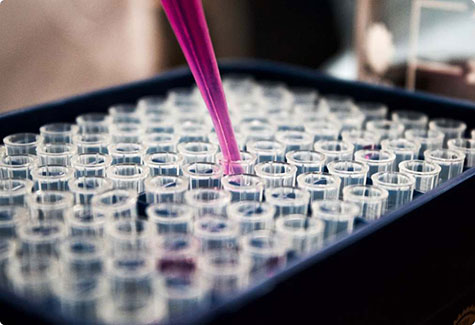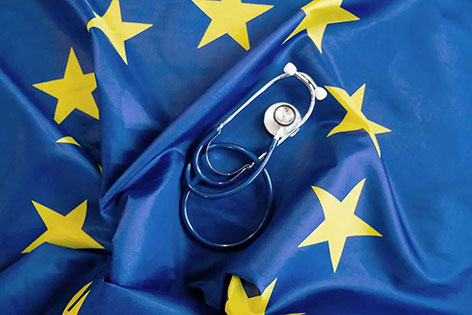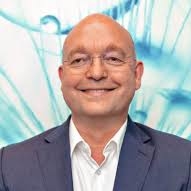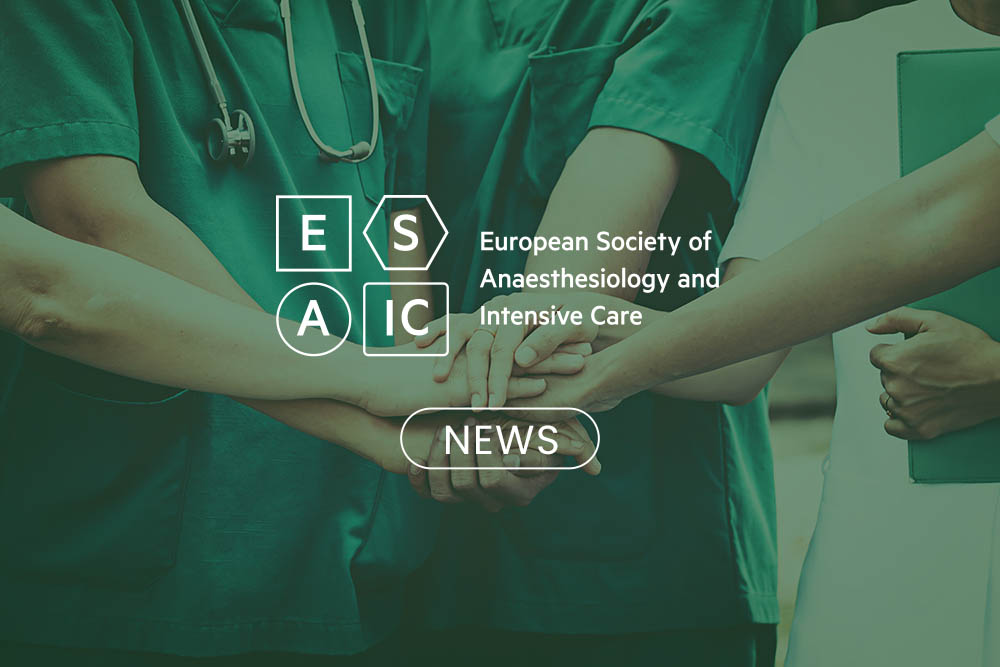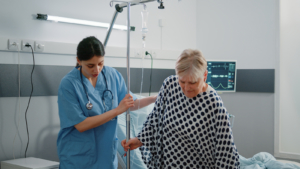Congress Newsletter 2022
ESAIC Honorary Member – Prof. Wolfgang Buhre
Our fourth Honorary Member this year is Prof Wolfgang Buhre, Professor of Anesthesiology, University of Maastricht; and Chair, Division of Anesthesiology, Perioperative Medicine, Emergency Medicine and Critical Care (CAKZ), Maastricht University Medical Centre, The Netherlands.
Q: Congratulations on your Honorary Membership Wolfgang. It must feel nice to join the long list of distinguished colleagues who have been given this honour?
A: Absolutely, it is a really an honour to be part of a group of colleagues contributing to the society and our speciality. Indeed, I was surprised when I got the information.
Q: Take us back to when you first started out as a trainee anaesthetist. What attracted you to the speciality? Who were some of your key mentors?
A: I started research in Anaesthesiology in my second year of medical studies, so quite early. I initially was interested in emergency medicine and physiology of the trauma patient. For whatever reason, I had to fortune to meet the late Prof Andreas Hoeft, at that time, who was a second-year resident and so it all started. My mentors in residency are role models of clinicians – physiologists, mainly from the Göttingen group, like Andreas Hoeft and Dietrich Kettler, but also colleagues from Switzerland like Edith Schmid. Cor Kalkman from Utrecht was my mentor in the field of outcome research and clinical trials. Within the ESAIC family, I always listened to Stef de Hert and Paolo Pelosi (both past presidents of the society) – their advice has always been important to me.
Q: Your training saw you spend time in Germany and Switzerland. How important is it for anaesthesiologists to train in different locations like this, including through programmes such as ESAIC’s Trainee Exchange Programme?
A: I advise colleagues to spend some time abroad when possible. Even a short period of a month or some days allows gives you a different view into how we are working and studying. So, working in a different health system or even culture contributes to a deep understanding which really helps us to work together in the future. Moreover, a lot of big studies can only be performed in a multi-national, multi-centric approach, therefore teambuilding is one of the cornerstones and that is what we learn during trainee exchange programs.
Q: What are some of your most important research projects from your career?
A: Well, this is a very difficult question. I always find the most recent the most important! However, basically, I started my research in the field of cardiac anaesthesia and physiology and in small populations of high-risk patients. However, after a couple of years, my interest in outcome research and in the prediction of patient-relevant outcomes increased substantially, so we created a team of colleagues involved in that area. In recent years I am interested in multicentric, sometimes. multinational studies like the TRACE study which deals with the Anaesthesiologist as part of the perioperative care team.
Q: And what studies are you involved in today?
A: As a clinical trialist, I am involved in two major outcome trials in the Netherlands, TRACE 1/Trace2, studying patient-related factors and the effects of prolonged duration of waiting for surgery on the outcome. Within AMAZONE, we are looking at psychological interventions to reduce the incidence of chronic postoperative pain syndromes in women undergoing breast cancer therapy. The latter is quite relevant as postoperative pain syndromes after surgery form a major health care issue. The DESIGNATION group as a spin-off of Pro Vent is now working on the optimisation of ventilation modes, a still-relevant topic. I am also interested in advanced monitoring, in particular on the normal ward, and just recently two major research projects (STARS and WearIT4Health), now we are analysing the results and then we will decide about the next steps in patient-centred monitoring.
Q: Mentoring is now a big part of your role, and indeed you run the EASIC mentor-mentee programme. How is this going, and how easy is it to match mentors with mentees?
A: Yes, indeed, mentoring is one of the most beautiful tasks for both mentee and mentor. I am happy that we now have a solid body of mentors and an enthusiastic group of mentees, the individual match is working better and better over the years. We try to keep the program relatively small, allowing us to stay in contact with the group.
Q: And what are some of your goals for the next period of your career?
A: Well, I expect to work for almost 12 years. Basically, there are three main goals: 1. Support the widespread establishment of integrated academic divisions combing anaesthesia, intensive care medicine and emergency care. My task will be to use my experience in this field to support other colleagues. Support the development of the next generations. In the upcoming years there will be real competition to stay attractive for our young colleagues, I will contribute to creating an environment where our colleagues can grow and take over. Recently, I started to set up a group on sustainability, with different green teams. Climate change is one of the biggest challenges and therefore we need to direct our research partly in this direction.
Thanks, Wolfgang and warmest congratulations on your Honorary membership.
Read More of our special newsletter covering our congress.

